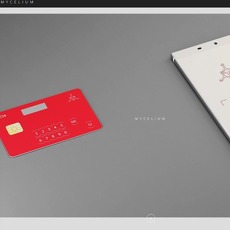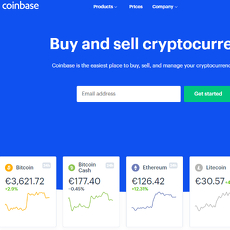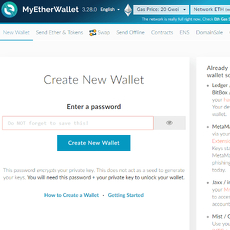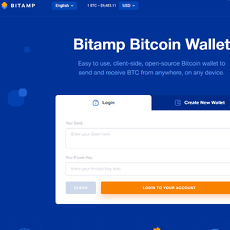Wirexapp Wallet Review
Wirexapp Wallet
wirexapp.com
Wirexapp Wallet Review Guide: Everything You Need to Know (Plus FAQ)
Ever felt completely lost trying to pick the right crypto wallet? You’re definitely not alone. I’ve seen loads of people—from total beginners to veteran traders—worried about their coins getting hacked, forgetting passwords, or simply not knowing whom to trust. Let’s be real: with the constant headlines about stolen crypto and scam apps, choosing the wrong wallet can empty your pockets in a heartbeat. So, how do you make sure Wirexapp Wallet won’t let you down?
Why Picking the Right Crypto Wallet Could Make or Break Your Experience
If you've been in crypto for even a week, you’ve probably noticed: everyone seems to have a horror story about bad wallets. According to a 2023 Chainalysis report, crypto theft rose over 50% compared to the previous year—mostly due to weak security or poorly chosen wallets.
That could be you if you trust the wrong app. Losing access to your coins doesn’t just sting, it can wipe out your investment overnight. Plus, annoying interfaces and terrible customer support are way more common than you think. Nobody wants to get stuck with a wallet that feels like it was designed by someone who’s never even touched crypto.
What’s in This Review and Why It’s Worth Your Time
I’m not here to sell you hype. My years of researching, testing, messing up, and scoring rare wins in the crypto space taught me what really makes or breaks a wallet. In this guide, I’m putting all that real experience into a clear, easy review:
- Unfiltered look at Wirexapp Wallet—no marketing fluff, just what you need to know.
- Answers to real questions—not just the stuff you find on their homepage, but the things actual users (like you and me) care about daily.
- What’s really secure—plus tips to keep your coins safer, even if you’re just getting started.
If you want straight answers and hate wasting crypto on fees, dodgy services, or wallets that give you headaches, you’re in the right place.
What Everyone Wants to Know About Wirexapp Wallet
I get questions every week about Wirexapp and other wallets, especially from people Googling late at night, worried about their coins vanishing! Here’s what pops up all the time:
- Is Wirex a good wallet?
- Is Wirex regulated? (Let's be honest, this one matters for peace of mind!)
- How secure is Wirex compared to others?
- What coins can I actually store? (BTC, ETH, uncommon ones? We'll check real examples.)
- Are the fees as low as they claim? And are there any sneaky costs you won't spot until it’s too late?
There’s a lot more to any wallet than what its splashy website says. If you’ve ever wondered whether a crypto wallet is really as safe or easy as it seems, you’ll find some answers here.
Pro tip: Most wallet “nightmares” start with small, easily missed details—hidden fees, weak security, or just being hard to recover if you lose your phone. We’ll look out for all these pitfalls together.
Ready to understand what makes a crypto wallet genuinely secure and why it matters so much? The next section will break down what a crypto wallet really is and how the type you choose could save—or sink—your funds. Stick around and discover what makes one wallet stand out from all the rest…
What Is a Crypto Wallet, and Why Does It Matter for Your Security?
If you’re holding any amount of cryptocurrency—even just a little bit—it all starts with your wallet. It’s not just a digital storage place. In the crypto world, your wallet is your castle, your bank, and sometimes (if you choose badly) it can be your ultimate downfall. That’s not an exaggeration! According to a 2023 report by Chainalysis, over $3.8 billion in crypto was stolen by hackers last year alone. Crazy, right?
“Security is not a product, but a process.” — Bruce Schneier
Keeping your coins safe is always about using the right tools, not just the most popular ones. So, what exactly is a crypto wallet?
- Crypto wallets are apps or devices that let you store, send, and receive cryptocurrencies.
- They hold your private keys—the codes that prove you own your coins, not the coins themselves.
- If someone gets your key, they can empty your wallet. No “forgot password” rescue, no bank to call—just digital tumbleweeds and lost funds.
Types of Crypto Wallets: Pros, Cons, and Which One Fits You
Let’s sort out the most common wallets you’ll hear about. Each fits different needs, and the right pick can save you a world of trouble.
- Software wallets:
- Mobile wallets (like Wirexapp): Super convenient. Great for checking balances or making quick payments—think of them like Apple Pay for crypto.
- Desktop wallets: Good if you prefer managing everything from your laptop at home. They’re a bit less convenient for spending on-the-go.
- Web wallets: You use these right in your browser (for example, MetaMask or even big exchanges). Extremely easy, but you need to trust the platform’s security.
- Hardware wallets:
- Real physical devices like Ledger or Trezor. Best for storing large amounts—these are like keeping your cash in a vault rather than your pocket.
Which one’s the best? It depends. If you make daily crypto payments, a mobile wallet can be a game-changer. For serious savings, hardware wallets are usually the gold standard—they’re offline, so they’re immune to most hacks. I keep my “spending money” in software, and my “HODL stash” locked away offline. Find your balance.
What Makes a Wallet “Best”?
Ignore the flashy ads for a second. What actually matters with a crypto wallet?
- Security features: Is there two-factor authentication? Can you require biometric unlock?
- Supported coins: Does it work with the crypto you actually own? Bitcoin, Ether, stablecoins, etc.
- Ease of use: Clunky apps are a pain—choose something you’ll actually use.
- Regular updates: If a wallet goes months without security or UX updates, that’s a red flag. The best teams push updates constantly to stay ahead of threats.
- Bonus features: Some wallets have extras—like instant swaps, staking, or integrated fiat cards—that might actually make your life easier. “Set and forget” isn’t enough if you want options.
Remember: A truly great wallet disappears into the background while keeping your coins locked up tight.
Why I’m Extra Cautious with My Crypto
If I had a dollar for every hyped wallet that turned out to be a security nightmare, I’d buy another Bitcoin.
Never pick a wallet just because influencers are tweeting about it—or because your friend’s friend got rich using it. Check their history! Google “[wallet name] hack” before you download anything. Look at real user reviews and see how the company reacts to bugs or breaches.
- Security audits: Do they publish them?
- Insurance policies: Is your money covered in case the worst happens?
- Transparency: Are team members public and active in the crypto community, or do they hide behind avatars?
Honestly, too many people learn this the hard way. My own rule: Trust is earned. If a wallet stumbles—or acts shady—I don’t stick around.
But what about Wirexapp? Does it check the right security boxes, or is it just another slick-looking app? If you’ve ever wondered what’s really under the hood, the next part is about to answer that. Ready?
Introducing Wirexapp Wallet: An Overview
If you’ve ever felt overwhelmed by stacks of crypto wallets, Wirexapp Wallet stands out in the crowd for one simple reason—it was created to bridge the world of crypto and traditional money, not just serve digital diehards. Whether you want to pay for coffee with bitcoin or move euros to friends in a different country, Wirex tries to make that as easy as possible—all from a single app. That’s their promise, and it’s a big one in today’s tangled world of separate apps and clunky transfers.
Background: About Wirexapp and Its Reputation
Wirex got its start back in 2014, making it basically ancient by crypto standards. They jumped in with the goal of shrinking the gap between regular banking and the growing world of cryptocurrencies. Fast forward to today, and Wirex operates in 130+ countries and has millions of users worldwide (last counted, well past five million).
Wirex isn’t just aiming for crypto geeks—they’re chasing mainstream customers who want to manage traditional and digital currencies from the same sleek dashboard. Their reach is wide enough that they’ve landed regulatory green lights across the UK, EEA, and Asia-Pacific, which few wallet apps can say.
“If you want to know where a company’s trust really lies, watch whether they survive market storms. Wirex has handled hacks, regulations, and crypto winters—and they’re still here.”
Key Features Snapshot
- Supported Coins: Bitcoin, Ethereum, Litecoin, and about 30 more top cryptos, plus stablecoins and a few newcomers. They seem to add more every year, based on what real users ask for.
- Multi-Currency Support: Store, send, and receive not just crypto but also traditional money—euro, USD, GBP, and others—all in one place. Say goodbye to juggling five different apps.
- Debit Card Integration: This is where Wirex gets really clever. Link your Wirex card and spend crypto like cash at millions of shops worldwide—online or in person—without awkward conversions. I’ve personally tried grabbing lunch with BTC using my Wirex card, and the process was about as boring (and fast) as any typical debit card experience. That’s high praise.
- Ease of Use: Available on web, iOS, and Android, the Wirexapp design feels modern and clean. Even your non-crypto friends can figure it out in under five minutes. No intimidating wallet keys or bad UX from 2017. You get push notifications, portfolio overviews, and in-app exchanges with a few taps.
Who Is Wirexapp Wallet For?
Now, let’s get real—who actually benefits from using Wirexapp every day?
- Beginners: If you’re just starting your crypto journey, few wallets make onboarding smoother. The tutorials and interface are super clear. If your parents can use WhatsApp, they can use Wirex.
- Frequent Travelers: Wirex shines when you’re bouncing between countries and need to switch from USD to EUR or spend crypto at local shops, without getting hammered by exchange fees. The integrated card (Mastercard or Visa, depending on your country) is accepted almost everywhere you want to go.
- Everyday Spenders: If you actually want to use your crypto, and not just store it, Wirex makes that possible. Use BTC to pay for takeout, or send USDC to a friend in Asia in seconds.
- Casual Traders: You can convert between fiat and crypto in-app without opening clunky websites. Quick access to price alerts helps you catch a dip or spike on the go.
A recent study from Statista found that almost 70% of new crypto users just want a wallet that “works like a regular bank app”—not a maze of mysterious keys. Wirex’s hybrid approach speaks right to this need, which is probably why it’s consistently among the most downloaded fintech wallets in Europe and Asia year after year.
But what about your precious security? If you’re itching to know how Wirex actually keeps your digital (and fiat) cash safe, stick with me—because that’s exactly what’s coming up next. Have you ever wondered if a wallet this flexible is as secure as it looks? The answer might surprise you…
Wirexapp Wallet Security: What You Really Need to Know
Let’s face it: everything in crypto starts with trust. That means security isn’t just a feature—it’s the bedrock of your entire experience. I’ve seen wallets boasting all sorts of fancy “protection.” But does Wirexapp really keep your crypto safe or just say all the right things? Here’s what stands out when I put on my skeptical hat.
Security Architecture: The Nuts and Bolts
Wirexapp’s security setup reminds me of the classic “trust, but verify” mantra. Here’s what they’ve put in place:
- Two-Factor Authentication (2FA): Every time I log in or try to move coins, I get prompted for a second verification. It’s quick, but essential—especially with SIM swap hacks on the rise (Forbes highlights this as a top attack vector).
- Device Verification: Tried to sign in from a new phone? Expect a confirmation link in your email. It’s an extra step, but it means an attacker can’t just grab your password and run.
- Insurance on Held Funds: Wirex mentions that customer funds are insured against major breaches, which is something you won’t get everywhere. It’s not unlimited, but it’s an extra line of defense if the worst ever happens.
- Regulatory Compliance: For users in the UK and EU, Wirex is registered and overseen by proper financial authorities. While that can’t stop every cyberattack, it means there are actual rules and audits—not just wild promises.
“Trust is gained in drops and lost in buckets.” — And in crypto, a single leak could mean a tidal wave of losses. I never forget that, and neither should you.
How Does Wirex Compare to Other Wallets?
Compared to traditional software wallets like Exodus or mobile-first apps like Trust Wallet, Wirex does step up with its regulatory oversight and insurance—a rare combination. But, let’s be real: a self-custody hardware device (like Ledger or Trezor) where you alone hold the keys still offers the ultimate peace of mind, especially for large sums.
On the other hand, if you prefer ease of spending and integrated fiat/crypto services, Wirex is playing in the same league as Coinbase Wallet or Crypto.com’s app. Neither is 100% immune, but a regulated approach plus insurance makes Wirex more than just another pretty interface.
What to Do If You Lose Access – Account Recovery Processes
No one wants the panic moment: “I’m locked out of my account!” Thankfully, Wirex builds in solid recovery features:
- Standard password reset via email verification.
- If you lose your phone or 2FA device, their support will ask for ID verification—think photo ID and sometimes a selfie video for added proof.
- Tip from my own playbook: jot down backup codes (Wirex gives you these during 2FA setup) and keep them with your most important documents. That, plus enabling device notifications, means you’re never just one tech glitch away from losing your funds for good.
- Not to be overlooked: responsive customer support, which can make or break recovery. My last ticket with Wirex took a few hours, not days—something other wallets *still* can’t promise.
Bottom line: even with all these safeguards, you’re still a piece of the puzzle. Simple habits, like using unique passwords and keeping those backup codes safe, are your real secret weapon against crypto heartbreak.
But here’s a question I hear all the time: does this level of security make using Wirexapp actually pleasant day-to-day—or does it just get in the way? Trust me, you’ll want to check out what it’s like actually using Wirex (from signup to spending) before making up your mind… Curious how it stacks up where it really counts? Let’s get into the experience next.
User Experience with Wirexapp: The Good, The Bad, and The Surprising
Let’s get right to what everyone cares about—what’s it actually like using Wirex on an everyday basis? I’ve tinkered with a truckload of wallets over the years, but few have pushed as hard as Wirex to combine crypto with straight-up spending power. Here’s everything I liked, what needs some work, and those sneaky fees you don't spot until you’re in the thick of it.
Sign-Up, Set-Up, and Everyday Use
First things first: getting started with Wirex is smoother than most. The sign-up process won’t have you pulling your hair out. Once you download the app (available for iOS, Android, or just on the web), you’re guided through KYC—that’s identity verification. Sounds annoying, but it’s pretty standard these days for wallets that mix crypto and fiat.
Wirex scores big points with its interface. It doesn’t matter if you’re buying your first Bitcoin or you’ve been holding ETH since 2015—the dashboard is clean, accounts are easy to navigate, and sending or receiving crypto just makes sense.
- Select your currency and type in an address (or scan a QR), and you’re set—the app double-checks details and pops up helpful warnings if you make a mistake.
- The real magic shines in daily use. The Wirex card links right into your wallet balance so you can spend crypto at Starbucks just as easily as cash.
- Swapping between currencies is quick, with just a couple of taps. I’ve tried buying coffee in London, sending USDT to a friend, and topping up with GBP—all in one app. It’s frictionless when it works.
Still, there are quirks. For example, some features (like certain card perks) aren’t available in every country. And if you’re in a region Wirex doesn’t fully support, you might hit a few frustrating dead ends.
Hidden Costs or Annoying Surprises? Fees and Limits Explained
Wirex is all about transparency—at least, that’s the claim. But let’s peel back the curtain. Are there any hidden fees? Well, kind of.
- Deposits and Withdrawals: Crypto deposits are free. Withdrawing crypto comes with a network fee (no markup), but fiat withdrawals might cost you depending on the bank and region.
- Card Fees: The standard card is pretty much free if you’re not looking for fancy perks, but express delivery, replacement, and ATM withdrawals can add up, especially if you’re a frequent spender.
- Conversion Fees: Here’s where things get a little sneaky—the in-app currency exchange rates aren’t always spot on. There’s a small spread on swaps, and while it’s less than some competitors, it’s not zero. Expect a 1% fee for crypto exchanges, which is better than many wallets, but still worth knowing.
If you’re eyeing Wirex for everyday spending, check your country’s limits—spending or ATM withdrawal caps might put the brakes on your plans. For specifics, I always check their fee schedule and help section before making a big transfer.
Customer Support, Updates, and Community Feedback
No crypto wallet is perfect without solid support, and it’s here where Wirex wobbles a bit. Their in-app support is responsive *if* you catch them at the right time. The knowledge base is packed, but sometimes you just want a human, especially if something goes sideways.
Community chatter on Reddit and Trustpilot is a mixed bag. The praise? People love the convenience of the debit card, and in most regions, funds move as promised. But negative reviews pop up for slow support and, in rare cases, account holds during compliance checks. From what I’ve seen, Wirex responds to complaints faster than some big exchanges but not as fast as, say, the top hardware wallet brands.
On the bright side, updates roll out regularly. You’ll see fixes and new features pushed fairly often, which matters for both security and usability. I personally look for companies that release frequent updates—research shows that regular updates are a major positive signal in crypto. Wirex ticks this box.
What’s Next?
Nothing is ever truly “set and forget” in crypto wallets. The Wirex user experience is solid and evolving, but what about its real-world security in practice? Should you use it as your main wallet—or just as a spending tool? And what if you run into issues with lost access or outdated KYC?
Hang tight—I'm about to answer all the burning questions swirling around Wirex (and maybe a few you haven’t thought to ask). Curious if Wirex counts as a wallet or something more, or if you’ll be fully insured in case of trouble? Get ready, because the next part is where it all comes together.
Wirexapp Wallet FAQs and Final Thoughts
Let’s tackle the stuff nobody wants to Google (but everyone does). I’ve pulled together some of the most asked questions about Wirexapp Wallet—plus my straight-shooting advice about whether or not it’s the wallet you’ll want in your crypto toolkit. Ready for the final answers?
FAQ: Is Wirex Actually a Wallet, or Is It More Like an Exchange?
You know how some platforms blur the lines? Wirex is a classic example: it’s technically a custodial wallet and a sort-of-exchange. You can store your crypto, but you can also buy, sell, hold, and even spend with their debit card. It’s a super flexible setup, especially if you’re bouncing between crypto and regular cash.
But remember, it’s a custodial setup—meaning Wirex does have control over your funds in a similar way that exchanges do. If you want something with only your hands on the keys, a non-custodial wallet (like Exodus or hardware wallets) is the way to go.
Is Wirex Regulated?
Yes. Wirex holds several licenses—especially in the UK and EU. They’re registered with the Financial Conduct Authority (FCA) in the UK. In fact, Wirex went above and beyond in pushing for official regulation, which is rare in the crypto space. That’s a good sign if compliance is a big deal for you.
But be aware: regulations are changing quickly everywhere. Just because something is regulated now doesn’t mean it’ll never change. Always double check for your own country before moving large funds.
How Secure Is Wirexapp Wallet?
Security-wise, there’s plenty to be positive about. Aside from industry basics like two-factor authentication and device checks, Wirex claims to store most customer funds offline (cold storage) and offers insurance up to a certain limit for digital assets.
Here’s what stands out:
- 2FA and multi-sig on accounts (standard, but required!)
- Biometric logins for mobile
- Regulatory compliance with big financial watchdogs
Still, don’t get lazy—most cases of hacked accounts come down to bad passwords and phishing (according to a 2023 Chainalysis crypto crime report). Use unique passwords, enable every layer of security, and stay alert. No wallet is magic-proof.
Which Coins and Currencies Can You Store?
Wirex keeps expanding support. Bitcoin, Ethereum, Litecoin, and popular stablecoins are a given, but you’ll find dozens of choices, plus major fiat currencies like USD, GBP, and EUR. You can even hold them side-by-side in-app and swap between them instantly—which is super handy for travelers or cross-border pay.
Not every niche coin is supported, but you’ll have all the big players.
What Fees Should You Watch Out For?
This is where many people get tripped up. Wirex is transparent, but you have to read the table:
- Crypto-top-up fees: None for most coins.
- Card issuance fee: Modest, varies by country (often $5–10).
- Card transaction fees: Often free up to a certain amount, then a small percentage.
- Crypto conversion: Built into the spread—generally competitive, but not always the very lowest.
- ATM withdrawals: Free up to a certain limit, then capped or with a flat fee.
Always check yesterday’s rates, because crypto cards sometimes nudge those small numbers without much warning. If you hate hidden costs, double-check the app settings or ask support. And for really large conversions, compare with a dedicated exchange—sometimes you’ll find a better deal elsewhere.
Should You Use Wirexapp Wallet or Pick Something Else?
A lot depends on what you want:
- Wirex is perfect for: Anyone who wants “crypto plus card” all-in-one, especially if you need to move between coins and cash in the real world. Travelers, people who shop online, or just want a bridge between digital and traditional finance—it’s incredibly easy.
- Consider other options if: You need full control and true privacy, or plan to store very large sums long-term. In that case, non-custodial wallets plus a hardware wallet for backup is still the gold standard.
As an example: My friend uses Wirex as his “spending” wallet for online shopping, travel, and daily crypto debit card perks—while keeping his HODL stash locked away on a Ledger. That mix covers both speed and safety.
Wrapping Up: My Honest Take on Wirexapp Wallet
“Wirex sits at that sweet spot between old-world banking and crypto’s brave new world. It isn’t for everyone, but it is one of the smoothest options for everyday crypto, especially if you value convenience. Just be smart—use top-notch security, and don’t keep more in any one place than you can afford to lose.”
If this sounds about perfect for your needs—great! If not, don’t sweat it. There’s a wallet for every kind of crypto user, and you’ll find the best ones I’ve reviewed, straight and honest, right here. Pick what matches your own habits, risk, and style—and keep your coins safe out there!













